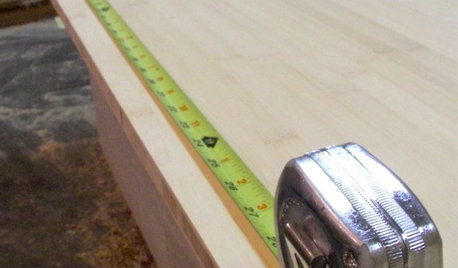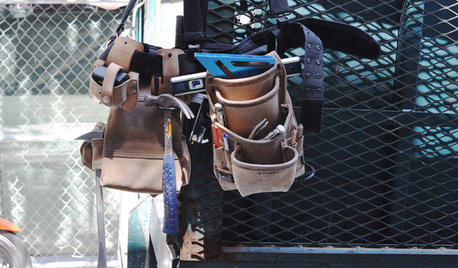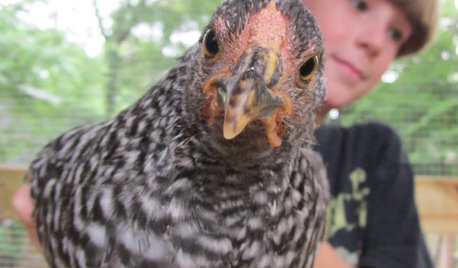Newbie question
AustinBill
10 years ago
Related Stories

SMALL HOMESHouzz Tour: An Illinois Loft Sparks Renovation Fever
Home improvement newbies (and newlyweds) find joy and a new income source while redoing their space themselves
Full Story
WOODWORKING7 Must-Have Measuring Tools for Woodworking
Whether you're a newbie DIYer or building cabinets from scratch, using the right woodshop tools makes all the difference
Full Story
FURNITURESmart Shopper: How to Judge Antique Furniture Quality
Pick the treasures from the trash without expert experience by learning how to evaluate antiques and what questions to ask
Full Story
MOST POPULAR10 Things to Ask Your Contractor Before You Start Your Project
Ask these questions before signing with a contractor for better communication and fewer surprises along the way
Full Story
WALL TREATMENTSPick the Right Paint Finish to Fit Your Style
The question of finish may be as crucial as color. See which of these 9 varieties suits your space — and budget
Full Story
DECORATING GUIDESDecorating 101: Do It Yourself or Hire a Pro?
Learn the advantages and disadvantages of decorating alone and bringing in skilled help
Full Story
FARM YOUR YARD4 Farm-Fresh Chicken Coops in Urban Backyards
These Atlanta henhouses are worth crowing about for their charming, practical designs
Full Story
MOST POPULARDecorating 101: How Much Is This Going to Cost Me?
Learn what you might spend on DIY decorating, plus where it’s good to splurge or scrimp
Full Story
KITCHEN DESIGNKitchen Remodel Costs: 3 Budgets, 3 Kitchens
What you can expect from a kitchen remodel with a budget from $20,000 to $100,000
Full Story
REMODELING GUIDESHave a Design Dilemma? Talk Amongst Yourselves
Solve challenges by getting feedback from Houzz’s community of design lovers and professionals. Here’s how
Full StoryMore Discussions






iLoveLawn
mendopete
Related Professionals
Ballenger Creek Landscape Architects & Landscape Designers · Beavercreek Landscape Architects & Landscape Designers · Franconia Landscape Architects & Landscape Designers · Manhattan Beach Landscape Architects & Landscape Designers · Rossville Landscape Architects & Landscape Designers · South Orange Landscape Architects & Landscape Designers · Fuquay-Varina Landscape Contractors · Hoover Landscape Contractors · Reedley Landscape Contractors · Antioch Landscape Contractors · Arkansas City General Contractors · Chowchilla General Contractors · De Pere General Contractors · Galveston General Contractors · Park Forest General Contractorsequinoxequinox
mherron2213
sbryce_gw
petrock1963
chuckiebtoo
equinoxequinox
chuckiebtoo
merrygardener